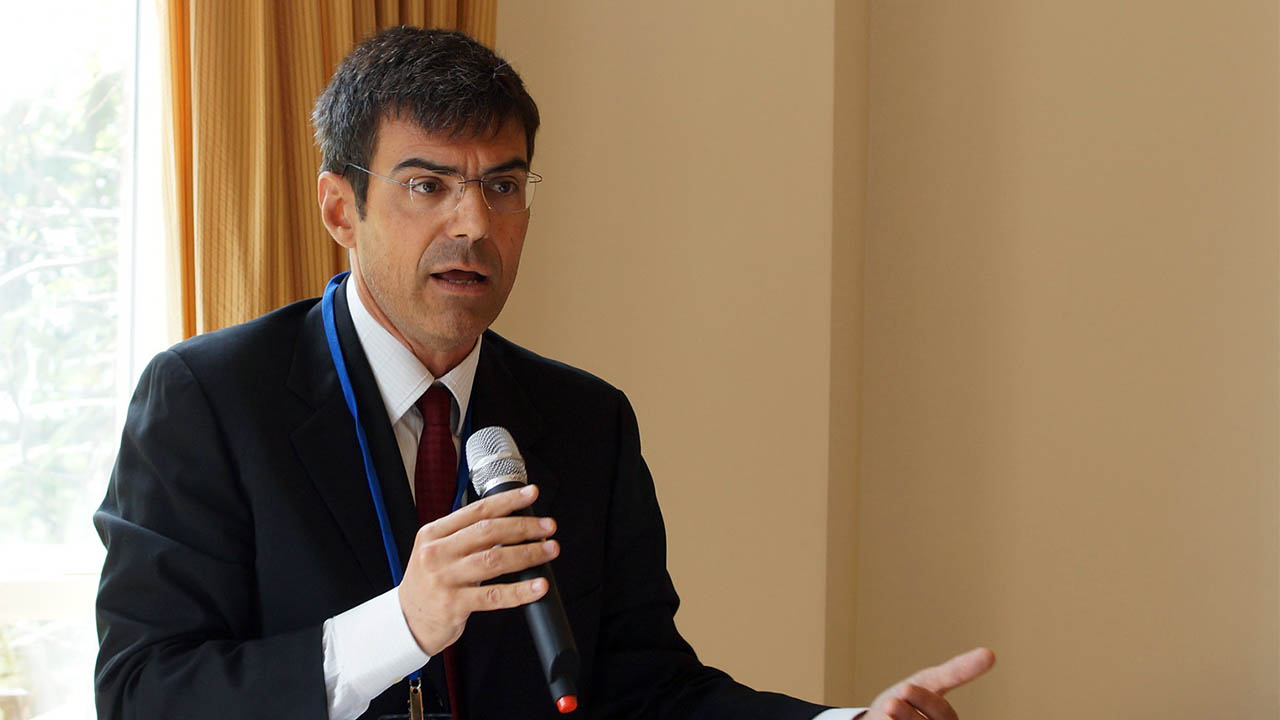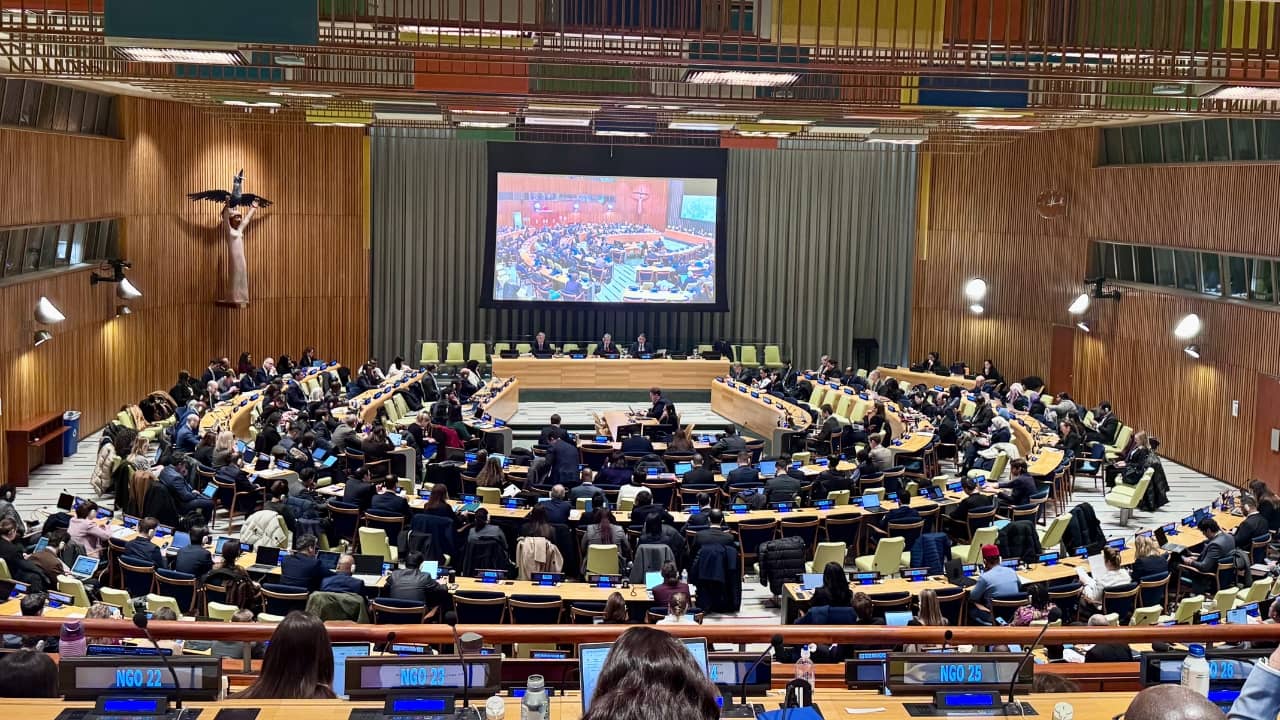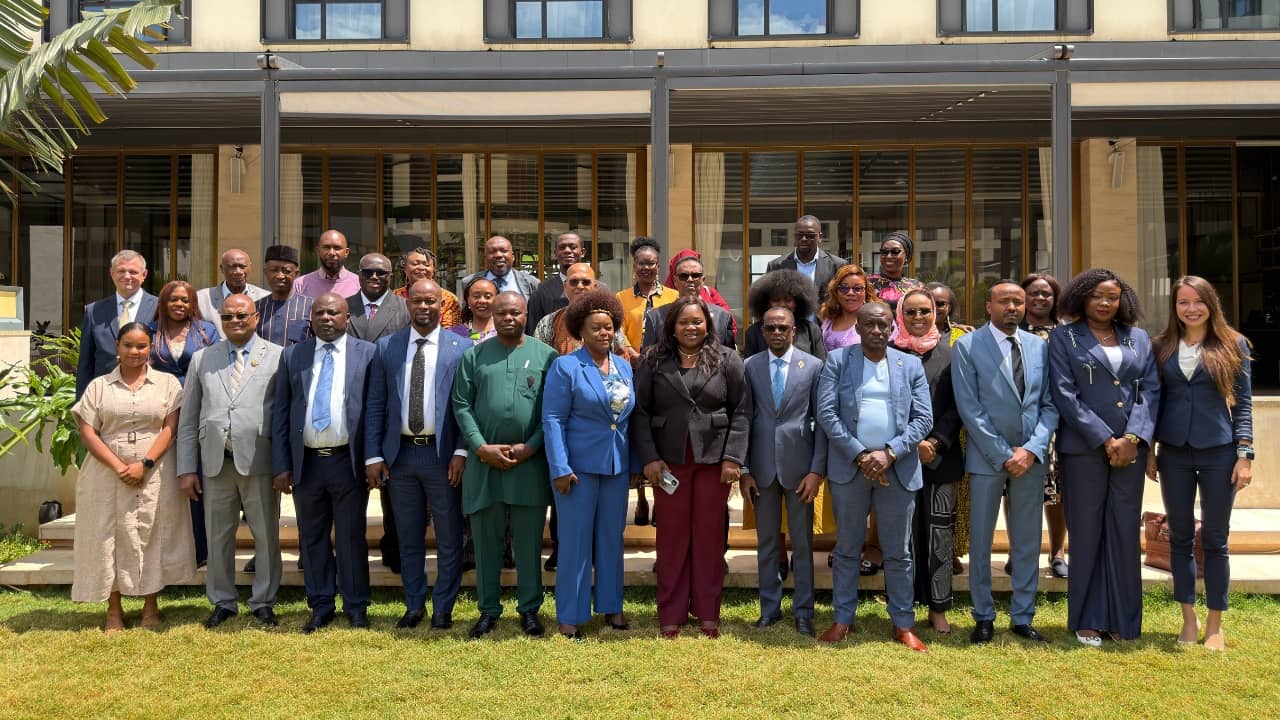
Dr. David Donat Cattin, a legal scholar and human rights activist who has worked over the last thirteen years at PGA to promote the universality and effectiveness of the International Criminal Court, will become PGA’s 4th Secretary-General, succeeding Ms. Shazia Z. Rafi, PGA’s Executive Committee announced today.
PGA is an international network of over 1,000 legislators from 139 countries that informs and mobilizes parliamentarians in all regions of the world to advocate for human rights and the rule of law, human security and gender equality.
Dr. Donat Cattin’s appointment follows an extensive international search process. He will begin work as Secretary-General-designate on November 1, 2013 with a formal hand-over on January 1, 2014.
In David we have found a passionate advocate, a dedicated and committed champion for the advancement of human rights, peace, democracy and the rule of law. I welcome his appointment. Ross Robertson, Assistant Speaker of the New Zealand Parliament and President of PGA
Dr. Donat Cattin currently serves as Senior Director of PGA’s International Law and Human Rights Program. Under his coordination, PGA Members contributed to the ratification process of 76 out the current 122 States Parties to the Rome Statute. He holds a Ph.D. in International Law and Human Rights (2000) from the University of Teramo (Italy), Faculty of Law, and a magna cum laude law degree (1994) from the LUISS-Guido Carli University of Rome (Italy), Faculty of Law. He has written extensively on international criminal law, has taught international law at NYU’s Center for Global Affairs and University of Salzburg School of International Criminal Law, and has been interviewed in international media on justice and development issues.
I am delighted that the Board of PGA, consisting of elected MPs from all regions of the world, chose me for this key position of service to our global membership. I will do my best to ensure that PGA addresses crucial goals identified by our Members: from support to the peace process to end 50 years of conflict in Colombia, to the country-by-country parliamentary mobilization for the entry into force and implementation of the Arms Trade Treaty, to the adoption of a comprehensive package to fight impunity and provide access to victims in DR Congo. These and many other priorities of PGA must be directed to realize our vision, namely, to contribute to the creation of a rules-based international order for a more equitable, safe and democratic world. Dr. Donat Cattin in The Hague
Shazia Rafi's legacy thinking has meant she dedicated herself to making a difference, appreciating that others will inherit what she leaves behind. Leadership is about one life influencing others, and Shazia has certainly done that. Ross Robertson
Ms. Rafi joined PGA in 1993 as Director, Democracy and Development Programs. She was appointed Deputy Secretary-General in June 1995 and Secretary-General in June 1996, the first woman to lead a parliamentary organization. Under her leadership, PGA has successfully promoted the Rome Statute establishing the International Criminal Court; played a critical role in the passage of the Arms Trade Treaty to regulate the conventional weapons trade; built international consensus for progressive legislation on gender equality and reproductive health at the Cairo Conference and the Beijing Conference and clean air/clean water legislation focused on urban environmental health; and mediated in conflict zones from Azerbaijan to Cote d’Ivoire and Haiti.






